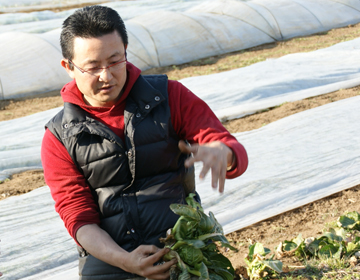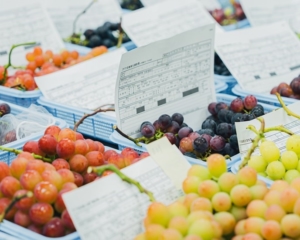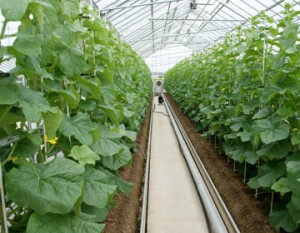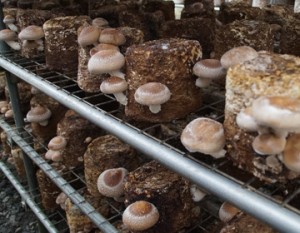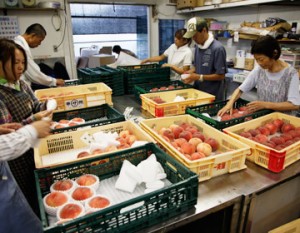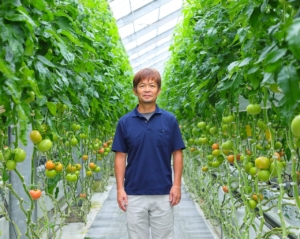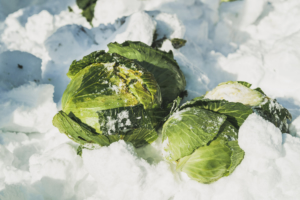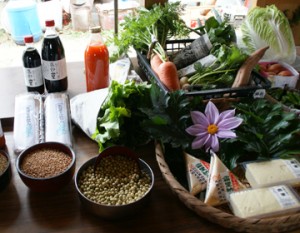Farming based on “philosophy”
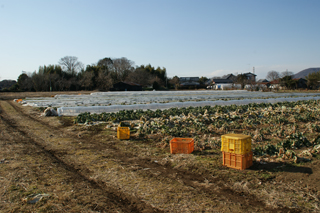
Tatsuo Hisamatsu started farming after quitting an office job. He says he ”started from his head”. He became interested in organic farming as he thought about environmental problems, and as his knowledge grew, he started to want to grow his own vegetables. However, when he got out of the training program and started growing vegetables, he realized how simply fun and interesting farming was. ”This job is all about me planting, growing, and harvesting vegetables, and having them delivered to customers. Its simple. You grow and deliver. I realized I actually liked doing that. To sell the crops, they had to be delicious. And organic farming just made sense for that purpose.” Organic farming is not like a cool philosophy. It just makes sense when you are trying to grow delicious vegetables.” That was the answer he found as he faced the vegetables and practiced farming .
What’s important is the soil
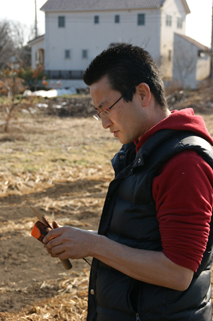
The element that Hisamatsu pays most attention to is the soil. As he spoke, he dug a carrot out of the soil and peeled it. with a knife. ”Carrots are a type of aromatic vegetable, like celery, so the aroma is very important. ” As he said this, he handed us the carrot, from which we could smell the strong aroma that you usually don’t experience. ”Root vegetables smell of the soil, so there’s no way to cheat how it smells. That’s why the soil is the most important element. ”
At Hisamatsu Farm, he makes 50 kinds of vegetables every year and sells them to the general public as vegetable packages according to the season, and also takes orders from restaurants. “If a cook requests “Komatsuna” (akin to spinach) with sturdy stalks, we grow such a vegetable. If there are people who are looking for delicious vegetables, that’s a nice thing. “ He then told me that he tries to deliver the products while it was fresh and aromatic.
For a delicious food culture
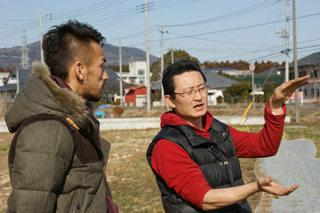
”A culture is born where there are people, and there is a need for the culture. It is something that’s there and now. It’s not going to stay as culture if the only thing there is history. ” Nakata answered when asked about this trip by Hisamatsu, looking back on his trip. ”That can be said about farming too.” agreed Hisamatsu. ”Japanese improvement is good, to improve productivity. But I think that’s headed in the opposite direction from ”delicious”. Yes it’s difficult to grow something that suits this age that’s also delicious and reflects the locality.” People choose delicious vegetables. Hisamatsu and his challenge of how much taste can be drawn out of the soil will continue.



